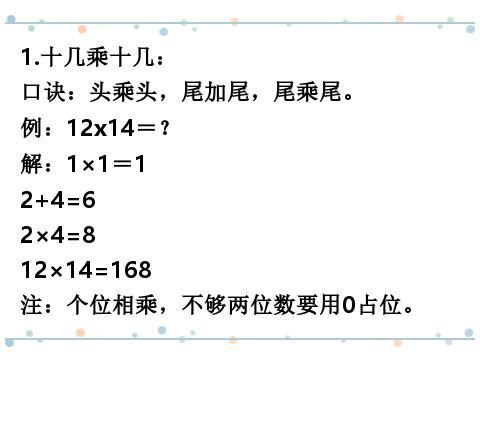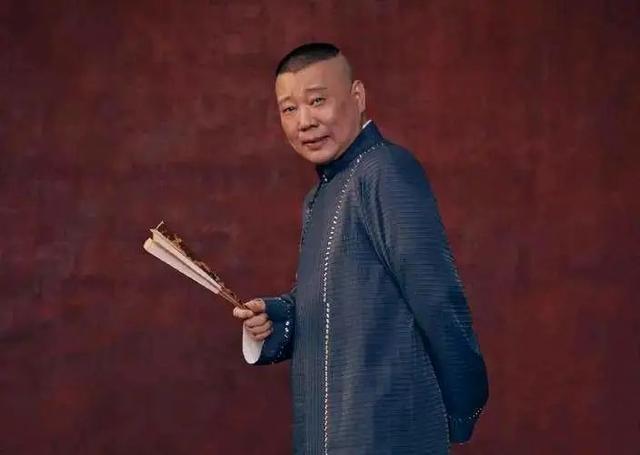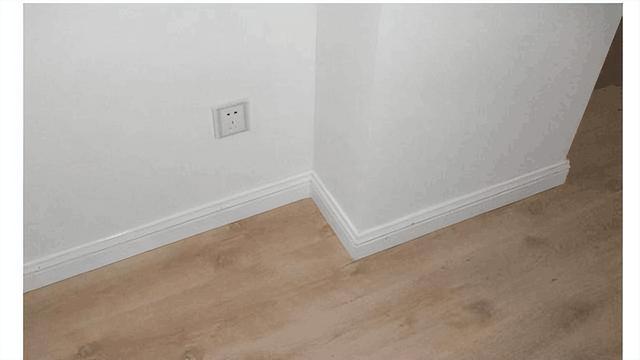小学英语必学的四种时态 小学英语四大时态语法总结和练习
小学英语四大时态语法总结和练习,下面我们就来说一说关于小学英语必学的四种时态 小学英语四大时态语法总结和练习?我们一起去了解并探讨一下这个问题吧!

小学英语必学的四种时态 小学英语四大时态语法总结和练习
小学英语四大时态语法总结和练习
一. 一般现在时
表示一般性,经常性的动作或一般性事实。
(1)含有be动词的句子
He is a teacher.
The girl is very beautiful.
Tim and Jack are students.
I am tall.
★变疑问句将be动词移到句首,如果有第一人称变为第二人称。
Is he a teacher? Yes, he is. No, he is not.
Is the girl very beautiful? Yes, she is. No, she is not.
Are Tim and Jack students? Yes, they are. No, they are not.
Are you tall? Yes, I am. No, I am not.
★变否定句在be动词后面加not
He is not a teacher.
The girl is not very beautiful.
Tim and Jack are not students.
I am not tall .
(2)不含有be动词的句子,即含有实义动词的一般现在时
常用时间:always, usually, often, sometimes, every day, on Sundays, 等
肯定句:主语(第三人称单数) 动词的单三形式s/es 其它
He likes books.
She plays with her friends .
My father drives to work.
★变疑问句时在句首加does, 同时动词单三形式变为原形
Does he like books? Yes, he does. No, he doesn’t.
Does she play with her friends? Yes, she does. No, she doesn’t
Does your father drive to work? Yes, he does. No, he doesn’t.
★变否定句在主语及动词之间加doesn’t, 同时动词单三形式变为原形
He doesn’t like books.
She doesn’t play with her friends .
My father doesn’t drive to work.
注意:动词单三形式(does)的变化规则:
1.一般在动词后面加“s". live-lives play--plays
2.以s, x, sh, ch 或o结尾的单词后面加“es”. do--does go--goes
3.以辅音字母 y结尾的单词,把y变i,再加"es". empty--empties.
4.特殊的动词单三形式:have --has.
主语不是第三人称单数时 动词原形 其它。
I want to buy a new book
We have some meat.
The students come from China.
★变疑问句在句首加do, 第一人称变为第二人称。
Do you want to buy a new book? Yes, I do. No, I don’t.
Do you have any meat? Yes, we do. No, we don’t
Do the students come from China? Yes, they do. No, they don’t.
★变否定句在主语和动词之间加don’t.
I don’t want to buy a new book.
We don’t have any meat.
The students don’t come from China.
就划线部分提问 (特殊疑问词 一般疑问句)
1. They want to do their homework.
What do they want to do?
2. He has two books.
What does he have?
二. 现在进行时
表示现在正在进行的动作。标志性单词:now, look, Listen,at the moment等等。
构成:主语+be动词+动词的现在分词(doing)+其它成分
We are having lunch now.
He is reading a book.
The boys are playing football.
★变疑问句将be动词移到句首,第一人称变为第二人称。
Are you having lunch now?
Is he reading a book?
Are the boys playing football?
★变否定句在be动词后面加 not
We are not having lunch now.
He is not reading a book.
The boys are not playing football.
现在分词(doing)的构成:
1.一般动词,直接加–ing,如: look -looking, read-reading.
2.如果动词末尾有e , 则去e 加–ing .如:make-making, write-writing.
3. 重读闭音节(辅音字母 元音字母 辅音字母)的, 应双写末尾的字母,再加 –ing. 如:sit-sitting,swim-swimming, run-running, put-putting.
★对划线部分提问:特殊疑问词 一般疑问句。
当提问做什么-(疑问词+动词+主语+现在分词)
1. We are having lunch now.
What are you doing now ?
2. He is reading a book
What is he doing?
3. The boys are playing football.
What are the boys doing?
注意:表示状态,思想,感情和感觉的动词不能表示正在进行的动作
1. 表示感觉,感官的词
see, hear, like, love, want,
2. have, has当”拥有”讲时没有进行时。
三. 一般将来时
表示将来将要发生的动作,常与表示的时间状语词、词组连用。tomorrow, next year, the day after tomorrow, the year after the next, in five hours’ time, 等
结构:主语 be going to do
主语 will do
例如:1. Jim is going to play football tomorrow.
= Jim will play football tomorrow.
2. I will go to school tomorrow.
He will fly to China the month after the next.
★变疑问句将助动词will提前到句首,同时第一人称变为第二人称。
Will you go to school tomorrow? Yes, I will. No, I will not.
Will he fly to China the month after the next? Yes, he will. No, he will not.
★变否定句在助动词will后面加not. will not 缩写形式为won’t.
I will not go to school tomorrow.
HE will not fly to Japan the month after the next.
★对划线部分提问:特殊疑问词 一般疑问句。
I will go to school tomorrow.
What will you do tomorrow?
He will fly to China the month after the next.
When will he fly to China?
含有be going to do 的一般将来时,变否定句和一般疑问句时,
同含有be动词的一般现在时变法一样。
四. 一般过去时
表示过去发生的动作或事件,常和表示过去的时间状语连用,如yesterday, last night, the day before yesterday, 3 days ago…
(1)含有be动词的句子,将(am, is , are )变为过去式,am, is的过去式为was,are的过去式为were
I was at home yesterday.
You were a student a year ago.
She was sad last night.
★变疑问句将be动词移动到句首,第一人称变为第二人称。
Were you at home yesterday? Yes, I was. No, I was not.
Were you a student a year ago? Yes, you were. No, you were not.
Was she sad last night? Yes, she was. No, she was not.
★变否定句在be动词后面加not
I was not at home yesterday.
You were not a student a year ago.
She was not sad last night.
was not 缩写形式 wasn’t were not 缩写形式 weren’t
不含有be动词的句子,将动词变为过去式(did).
I did my homework yesterday.
He went to school last Monday.
★变疑问句在句首加did,同时动词过去式变为原形。
Did you do your homework yesterday? Yes, I did. No, I didn’t.
Did he go to school last Monday? Yes, he did. No, he didn’t.
★变否定句在主语和动词之间加didn’t, 同时动词过去式变为原形。
I didn’t do my homework yesterday.
He didn’t go to school last Monday.
★对划线部分提问:特殊疑问词 一般疑问句。
I did my homework yesterday.
What did he do yesterday?
He went to school last Monday.
When did he go to school?
动词过去式(did)的变化规则:
1. 一般在动词后面加ed: work-worked, play-played
2. 以不发音e结尾的动词加ed: live-lived, move-moved
3. 末尾只有一个辅音字母的重读闭音节词,先双写这个辅音字母再加ed: stop-stopped, shop-shopped.
4. 以辅音字母加y 结尾的词,先改 y为 i,再加ed: study-studied
常见的不规则动词过去式:
do—did 做 have—had 有
go—went 去 am/is—was 是
see—saw 看见 are—were 是
eat—ate 吃 hurt—hurt 受伤
buy—bought 买 send—sent 寄
get— got 得到 say— said 说
fall—fell 摔倒 swim—swam 游泳
bring—brought 带来 read—read 读
take—took 乘坐,买下 fly—flew 飞
get—got 得到 come—came 来
make—made 做 put—put 放
give—gave 给 sit—sat 坐
drink—drank 喝 run—ran 跑
write—wrote 写 teach—taught 教
find—found 找到 meet—met 遇见
wear – wore 穿着 hit – hit 击、打
巧记动词过去时
动词一般过去时, 表示过去发生事;
be用was或用were, have, has,变had, 若是行为加ed,
若变否定疑问句,没有be动用did,
如果did加在前, 动词必须变原形。
一般现在时专项练习
一、写出下列动词的第三人称单数 want ________ have _________ play ________
make ________ look _________ take ________
read ________ come ________ swim ________
watch________ plant________ drink________drive _______ teach________ walk_________
buy _________ eat ________ sit ________
go _________ do __________ listen ______
二、用括号内所给动词的适当形式填空。1. He often ____________ (have) dinner at home.2. Danny and Tom ____________ (be) in Class One now.3. We usually ____________ ( watch) TV in the evening.4. Jenny ____________ ( go) to the zoo on Sundays.5. The girl often____________ (teach) us English .6. Look! There ____________ (be) some water in the bottle.7. He ____________ (like) cooking.8. She always ____________ (do) her homework well.9. I ____________ (be) ill. I’m staying in bed now .10. She ____________ (plant) the flowers on Saturday.
三、按照要求改写句子1. Danny watches TV every evening.(改为否定句)_____________________________________________________________
2. I do my homework every day.(改为一般疑问句)_____________________________________________________________
3. She likes milk.(改为一般疑问句并做肯定回答)
_____________________________________________________________
4. I come from China.(用He做主语改写句子)_____________________________________________________________
5. She is listening to music now.(用often改写为一般现在时)
_____________________________________________________________
四、单项选择题。(请将正确答案的序号填入前面的括号内)
( )1. I ________ to school at 7:00 in the morning.
A. go B. going C. goes
( ) 2 .She ________ books every day.
A. reads B .read C .reading
( ) 3.The monkeys ________eating bananas very much.
A. likes B. like C. liking
( ) 4. My friend ________ to school every day .
A. go B. goes C. went
( ) 5. ________ your sister drink milk every day?
A. Does B. Are C. Has
( ) 6. I ________ a brother, but she ________ a sister.
A. have, have B. has, has C. have, has
( ) 7. Jenny________ English every evening.
A. study B .studies C .study
( ) 8. He____ the bedroom every day.
A.is cleaning B. Clean C. Cleans
( ) 9. She often ________ up at six in the morning.
A. get B. gets C. getting
( ) 10 .He often ________ his clothes.
A. wash B. is washing C. washes
( ) 11. ________ your friend ________ in Beijing?
A. Do; live B. Do; lives C. Does; live
( ) 12.Tom and Mike ________ very happy.
A.is B. are C.am
( ) 13.It ________ very nice.
A. look B. looks C. looking
( ) 14.Bill and I ________ good friends.
A.is B .are C.am
( ) 15.Jenny often ________ his homework on Sundays.
A.do B. does C. did
( ) 16. What ________ you usually do on your holiday?
A. are B. does C.do
( ) 17. The girl with two big eyes ________ Lynn.
A.is B.am C. are
( ) 18.They never ________ cards in the study .
A. plays B. to play C. play
( ) 19. You ________a student. He ________ a teacher.
A.is; is B. are; is C. are; are
( ) 20. He always ________ football games with his father.
A. watches B. watch C. doesn’t
现在进行时专项练习一、写出下列动词的现在分词:play__________ run__________ swim__________ make__________ go __________ dance__________
write__________ sit__________ take __________read__________ have__________ sing __________ shop__________ get__________ ride __________二、用括号内所给动词的适当形式填空。1. He ____________ ( draw)a picture now.2. Listen! Some girls ____________ ( sing)in the classroom .3. My mother ____________ ( cook )some nice food now.4. Look! They ____________ ( have) an English lesson .
5. The girls ____________ (dance )in the classroom .
6. What are you doing? ---I____________ (do) my homework.
7. ____________the students ____________(read) English.--Yes, they are.
8. Who____________ (sit)under the tree? ----Li Ying is.
9. My little sister ____________(play) with her toys at the moment.
10.She is ____________ (wash)the dishes in the kitchen now. 三、按照要求改写句子:1. I am doing my homework .(改为一般疑问句和否定句)__________________________________________________________________________________________________________________________2.The students are cleaning the classroom .(对划线部分进行提问)_____________________________________________________________3. She always washes her face every day.(用now改为现在进行时)
_____________________________________________________________
4. My grandfather is planting flowers now. (对划线部分进行提问)
_____________________________________________________________
5. Open the window. (用He做主语改为现在进行时)
_____________________________________________________________
一般将来时专项练习
一、用括号内所给动词的适当形式填空。
1. He ____________ (watch) TV tomorrow .
2. She is going __ ( have) a party this evening.
3. What ____________ you _____________ (do) tomorrow ?.
4. ____________ (be)they going to the park this evening?
--Yes, they _____________.
5. We _____________ (leave) here next year.
6. Danny ____________ ( not fly) a kite the day after tomorrow.
7. There _____________ (be)a meeting tomorrow.
8. His parents _____________ (move) to London next week.
9. __________they ____________(have) a holiday the month after next.
No, they ______________.
10. It _______________ (rain) tomorrow.
二、单项选择题。(请将正确答案的序号填入前面的括号内)
( )1. ________ he ________ shopping tomorrow afternoon ?
A. Will…does B. Will…go C. Is…doing
( )2. Are you _________ your winter holiday next week?
A. going to have B. will have C. had
( )3. He ________ her a beautiful hat on her next birthday.
A. gives B. will giving C. is going to give
( )4. They _________ an English lesson next Sunday.
A. are having B. are going to have C. will having
( )5. I _________ my grandparent next weekend.
A. will visit B. am visit C. will visiting
三、按照要求改写句子:1. Nancy is going to do her homework .(改为否定句) Nancy __________ going to do her homework.2. We will meet at the bus stop at 10:30.(改为一般疑问句) __________ __________ meet at the bus stop at 10:30?3. He is going to play football after school.(对划线部分提问) ________ _______ he ________ ________ _________ after school?
4. We are going to have some classes this Sunday . (改为否定句)
We ___________ going to have ___________ classes this Sunday .
5. Mr. White gives us a talk .(用next week 改写)
Mr. White ______ _______ ______ _______ us a talk next week.
一般过去时专项练习
一、写出下列动词的过去式
is _________ are _________ do _________
eat_________ have _________ walk_________
play_________ see_________ come_________
watch_________ go_________ buy_________
get _________ find _________ meet _________
send _________ leave _________ put _________
read _________ give _________ take _________
look _________ swim _________ wash _________
二、用括号内所给动词的适当形式填空。
1. Tom and Mary _____________ (come) to China last month.
2. I _____________ ( go) to bed last night.
3. He ____________ (read) English yesterday morning.
4. My mother _____________ (do)the housework yesterday.
5.He _____________ (listen) to music last night .
6.They _____________ (be) at home just now.
7.Last week we _____________ (walk) to the park.
8.What_____________ they _____________(do) yesterday?
They ______________(clean) the classroom.
9. We_____________ (be) tired yesterday.
10. There_____________ (be) a football match yesterday evening.
三、改错题(每个句子有一处错误)
1.How is Jane yesterday?
___________________________________________________
2.He go to school by bus last week. ___________________________________________________
3.He goes home at 6:00 yesterday. ___________________________________________________
4.Did you saw him just now? ___________________________________________________
5.I did not my homework yesterday. ___________________________________________________
四、按照要求改写句子:
1. He came here last month. (改为否定句)
He _______ _______ here last month.
2.They played football this morning. (改为一般疑问句)
—______ they _______ football this morning?
3.They went to Beijing last year. (改为一般疑问句)
_________ they _________ ________ Beijing last year?
4.Tom watched TV last night. (改为一般疑问句)
_______ Tom _______ TV last night?
5.Mary was at home yesterday. (改为否定句))
Mary ________ __________ _________ ________ yesterday.
综合练习
一、用所给词的适当形式填空
1. My father ____________ (not stay) at home yesterday.
He ____________ (go) to England.
2. _______ they _______ (visit) the zoo last Sunday?
3. —Who ________ (teach) you English last term?
4. —When ________ you _________(buy) these flowers?
—I __________ (buy) them last week.
5. Last Sunday my mother ______ (go) shopping and _______ (buy) me a dress.
6. —When ________your brother _________ (get) here?
—He _______ (get) here two days ago.
7. Tom _________ (have) a cold last week.
8. Listen! Who ____________ (speak) English in the library?
9. She __________ (like) music. Now she ____________(sing).
10. Don't ___________ (run) in the street.
11. _________ you ___________ (go) to school every day?
12. Look, the pupils ___________ (have) an English class.
13. My mother ____________ (wash) the dishes in the kitchen now.
14. He ________ (like) art very much. Look! He_________(draw) a horse now.
15. We_____________ (visit) the Great Wall next month.
16. My father _____________ (fly) to Beijing the day after tomorrow.
17. _________ you __________ (borrow)(借) books from the library tomorrow?
18. I ___________ (write) a letter this evening.
19. He ____________ (make) a kite next Saturday.
20. My mother ____________ (cook) some delicious food every weekend.
21. I __________ (have) a bike and Lisa ____________ (have) a bike, too.
22. My sister __________ (be) a pupil now. She__________(study) very hard.
23. Who ___________ (cook) breakfast for your family now?
24. My father is a teacher. He ___________ (teach) me English in the evening.
25. John _____________ (go) to school by bike yesterday.
26. Kate often __________ (play) table tennis with her friends.
27. My mother often __________ (go) shopping and _________ (buy) some vegetables in the market.
28. —Who ______________ (study) hardest in your class?
29.Jenny always ___________(do) her homework before dinner.
30. Yesterday I __________ (buy) a new coat.
二、把下列句子变为一般疑问句:
1. I am good at swimming.
______________________________________________________
2. Danny is a student in Grade (年级)Six.
______________________________________________________
3. Tom likes to listen to music。
______________________________________________________
4. I can clean the room.
______________________________________________________
5.He came from China last year.
______________________________________________________
6. They often help their father on the farm after school.
______________________________________________________
7. He wants to be a doctor .
______________________________________________________
8. We play basketball on Sundays.
______________________________________________________
9. The girls are singing songs in the classroom.
______________________________________________________
10. There are some books in the desk .
______________________________________________________
11. The boy is standing beside the chair.
______________________________________________________
12.There is some fruit juice in the glass.
______________________________________________________
13. We will visit the U.S. next week.(下一周)
______________________________________________________
14. My friend feels very happy.
______________________________________________________
三、将下列句子变为否定句:
1.They take some pictures every day.
______________________________________________________
2. Open the door.
______________________________________________________
3.There are some animals there.
______________________________________________________
4. My mother will take me to Beijing next Sunday.
______________________________________________________
5.She can run very fast .
______________________________________________________
6. He plays football every Friday.
______________________________________________________
7. Jenny washes the dishes after lunch.
______________________________________________________
8. We are going to draw pictures tomorrow.
______________________________________________________
9. I was tired yesterday.
______________________________________________________
10.They taught Li Ming to throw the ball.
______________________________________________________
三、对划线部分提问
1. My father will take me to Beijing.
______________________________________________________________
2. She will be at home this afternoon.
______________________________________________________________
3. I’m looking for a dress.
______________________________________________________________
4. I see many animals at the zoo.
______________________________________________________________
5. I often help my grandfather on the farm.
______________________________________________________________
6. I am from Australia.
______________________________________________________________
7. My new pencil-box is ten yuan.
______________________________________________________________
8. He came to visit China two days ago.
______________________________________________________________
9. There are twelve students on the playground.
______________________________________________________________
10. I get up at 6 o’clock every morning.
______________________________________________________________
11. I came here by train.
______________________________________________________________
12. He’s making his bed.
______________________________________________________________
13. My father read newspapers last night .
______________________________________________________________
14. She eats vegetables twice a week.
______________________________________________________________
15. This is his shirt.
______________________________________________________________
,免责声明:本文仅代表文章作者的个人观点,与本站无关。其原创性、真实性以及文中陈述文字和内容未经本站证实,对本文以及其中全部或者部分内容文字的真实性、完整性和原创性本站不作任何保证或承诺,请读者仅作参考,并自行核实相关内容。文章投诉邮箱:anhduc.ph@yahoo.com






